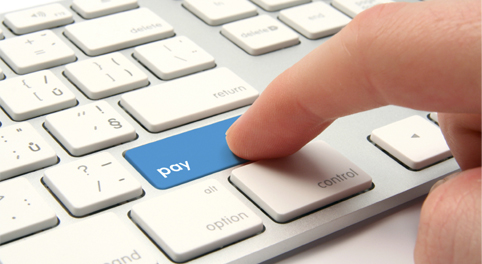Online Payment Mechanisms in Freelancing
For a freelancer or any person involved with monetary transactions online, payments and remunerations always spark a sense of insecurity.
This takes place because online guarantees and contracts do not provide the same psychological and physical sense of security compared to proper legally authentic documents. Although most of the online payment contracts are bound by legality, the virtual nature of the work environment breeds in natural doubts on both the employee and employer sides.
In these circumstances, it is always advisable to familiarize yourself with different payment mechanisms which are available online. Some of the most popular and authenticated ones are:
-
Direct Wire Transfers
It is the most common way of money transfer and the first of the mechanisms to surface in the late 1980s.
It involves you providing your client or the platform where you work your bank account details so that the money due can be directly transferred into your account once you are eligible for receiving the payment. Local or within the country transactions prefer wire transfers as there is are no issues of currency exchange and double taxation considerations. This method is quite simple.
-
PayPal
PayPal is by far, the most popular payment tool used by people across the globe.
According to the latest statistics there are 110 million active PayPal accounts. This justifies its popularity.
More stats can be found here.
PayPal allows you to earn or spend in any currency. When you sign up, you will be asked to link your bank account where ultimately you can both deposit to and withdraw funds from.
You can convert the deposits in your account at any given point based on the current exchange rates.
PayPal is fairly easy to use and most online websites offer PayPal as a mode of payment.
PayPal charges very small transaction fees which are charged on transactions above a certain limit.
-
Debit/Credit Card Payments
This is another very common payment method mostly used for only payment scenarios on e-commerce portals and other business websites.
The most common cards in use are American Express, MasterCard and Visa. They are old players of this market and offer secure payment gateways with no glitches.
-
Google Wallet
This is Google’s reply to PayPal. It has virtually the same mechanism as PayPal but has introduced some new features which make it a worthwhile competitor.
Google also announced that it will be releasing a physical card that is connected to users’ accounts so they can utilize Google Wallet at retail businesses.
This has propelled Google Wallet’s popularity and made it a top contender in this field.
-
Stripe
Stripe has evolved into a payment platform for the rare talent like software developers.
Developers use Stripe to integrate a payment system into their projects through Stripe’s robust API. This prevents the need for a merchant account, and also allows you to build your own payment forms that can bypass PCI requirements.
The online market place has numerous payment tools and mechanisms which can get confusing if you don’t stay aware. Novice starters often become victims of spams and frauds and in turn shy away from immense opportunities. Therefore, it is quite essential to familiarize yourself with the different forms and modes of payment.
Stay informed, stay covered.
A passionate Blogger and Digital Marketer
